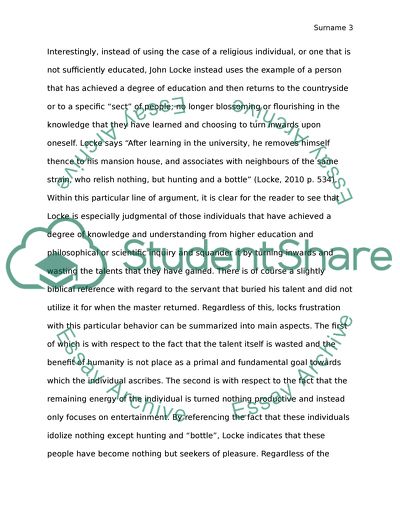Cite this document
(“Here is one (a country gentleman) muffled up in the zeal and Essay”, n.d.)
Retrieved from https://studentshare.org/philosophy/1658699-here-is-one-a-country-gentleman-muffled-up-in-the-zeal-and-infallibility-of-his-own-sect-using-examples-from-the-text-please-show-why-locke-is-critical-of-learning-that-is-gained-from-restricted-social-circles
Retrieved from https://studentshare.org/philosophy/1658699-here-is-one-a-country-gentleman-muffled-up-in-the-zeal-and-infallibility-of-his-own-sect-using-examples-from-the-text-please-show-why-locke-is-critical-of-learning-that-is-gained-from-restricted-social-circles
(Here Is One (a Country Gentleman) Muffled up in the Zeal and Essay)
https://studentshare.org/philosophy/1658699-here-is-one-a-country-gentleman-muffled-up-in-the-zeal-and-infallibility-of-his-own-sect-using-examples-from-the-text-please-show-why-locke-is-critical-of-learning-that-is-gained-from-restricted-social-circles.
https://studentshare.org/philosophy/1658699-here-is-one-a-country-gentleman-muffled-up-in-the-zeal-and-infallibility-of-his-own-sect-using-examples-from-the-text-please-show-why-locke-is-critical-of-learning-that-is-gained-from-restricted-social-circles.
“Here Is One (a Country Gentleman) Muffled up in the Zeal and Essay”, n.d. https://studentshare.org/philosophy/1658699-here-is-one-a-country-gentleman-muffled-up-in-the-zeal-and-infallibility-of-his-own-sect-using-examples-from-the-text-please-show-why-locke-is-critical-of-learning-that-is-gained-from-restricted-social-circles.


